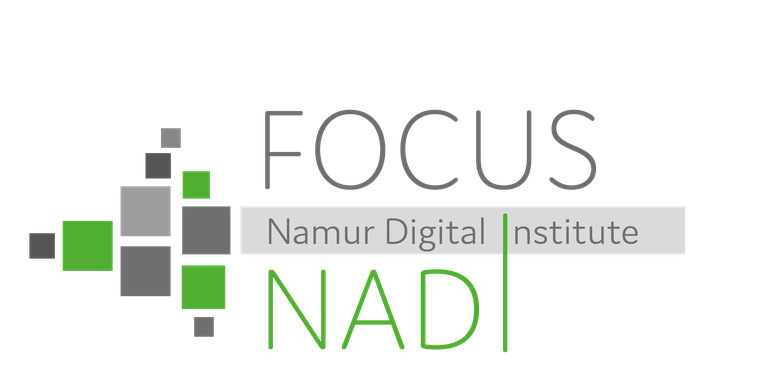FOCUS

Presentation
FoCuS federates researchers interested in the study of basic paradigms and mathematical foundations of computer science. They are issued both from the Faculty of Computer Science and from the Business Administration Department of the Faculty of Economical, Social and Management Sciences.
Research Description
The members of FoCuS develop research projects according to two main axes: on the one hand, the study of declarative languages and, on the other hand, the exploration of knowledge models, extraction and visualisation.
Study of Declarative Languages
Declarative languages are studied from four main perspectives.
Coordination languages
Research on coordination languages and models is conducted at different levels: the design of new mechanims, the study of semantics, the implementation of languages, the conception of programming methodologies and related workbench. Recently, work has been undertaken on the animation of programs written in coordination languages.
Program analysis and verification
Static analysis refers to techniques that are used to analyze the source code of a program in order to discover properties. In this line of research, FoCuS members have studied techniques to automatically analyze whether two given code fragments contain a substantial amount of sufficiently similar constructs in order to conclude that the fragments are cloned, i.e. one is derived from the other by copying and/or modifying or transforming the code . At a more abstract level, such techniques have been used to approximate whether two programs implement the same algorithms. Important applications include program comprehension and plagiarism detection.
Temporal logics
Distributed and reactive systems can be modeled in a modular manner using operations such as sequential and parallel compositions. Each component of a modular system can be replaced by behaviorally equivalent components without changing the properties of the modules. The properties can be preserved by means of semantic equivalences. The most well-known one, bisimulation, regards two states as equivalent if they can engage in the same observable transitions and after performing similar transitions end up in equivalent states again. The links between bisimulation, temporal logics and automata have already been widely explored. For instance, efficient algorithms checking for timed bisimilarity have been discovered and implemented in tools for automatic verification. Several real-time logics have been studied inside FoCuS, in particular to cope with distributed real-time systems in which components face a large number of timing constraints and are regulated by non synchronized clocks.
Learning methods
Teaching concurrency in an introductory course is usually seen as harder than teaching sequential programming. However, with the development of networks and the spreading of devices, students live in a concurrent world. Moreover declarative languages offer a high perception view of what is to be computed and hence should facilitate the expression of concurrent mechanisms. In this context, about 30 visualization systems have been studied according to 8 criteria in the aim of selecting tools for a first course on concurrent programming. In a complementary line of research, the Mounilog system has been conceived on the basis of Prolog in order to assign exams to students.
Knowledge Models, Extraction and Visualisation for Analysis and Decision
Four lines of research are conducted in this axis.
Expert Systems
Research has been pursued on the Seplans/Proceplans expert systems through recent web extensions of the Seplans expert system and and several master theses exploring how machine learning techniques can be used to extract knowledge from cases related to trademarks.
Text Analysis
Most computational text analysis techniques reduce text meaning to statistics or numbers (bag of words, vectors, ...). A new line of research has been launched in the aim of supporting text analysis in human sciences by proposing rich semantic models for texts. These models aim to integrate evocation, presupposition and implicits of the text. In parallel with the formal models, the research develops novel interaction and visualisation models These fundamental contributions are integrated in the Evoq text analysis software.
Business Data Knowledge Extraction
Volume of data in companies is exploding. Its potential value for business has been enhanced by many research and business experiences. However, identifying the relevant sources and extracting the valuable knowledge out of them remains a challenge for each specific business. This challenge is being addressed in three research strands:
- business intelligence: enrichment of BI platform design through business knowledge modelling;
- mobile data: user profile extraction, as network information, from call data records;
- industry 4.0: default prediction and prospective maintenance planification from production data.
Computational models for biological systems
In a recent research trend, computational models for systems biology are being studied, in particular as regards the use of constraint programming to reason on boolean regulatory networks.
Contact: Isabelle Linden
 Namur Digital Institute
Namur Digital Institute
